The ultimate guide to non-toxic cleaning products – what to make, shop, use, and avoid at home
Dodge unhelpful and misleading greenwashing with these expert picks
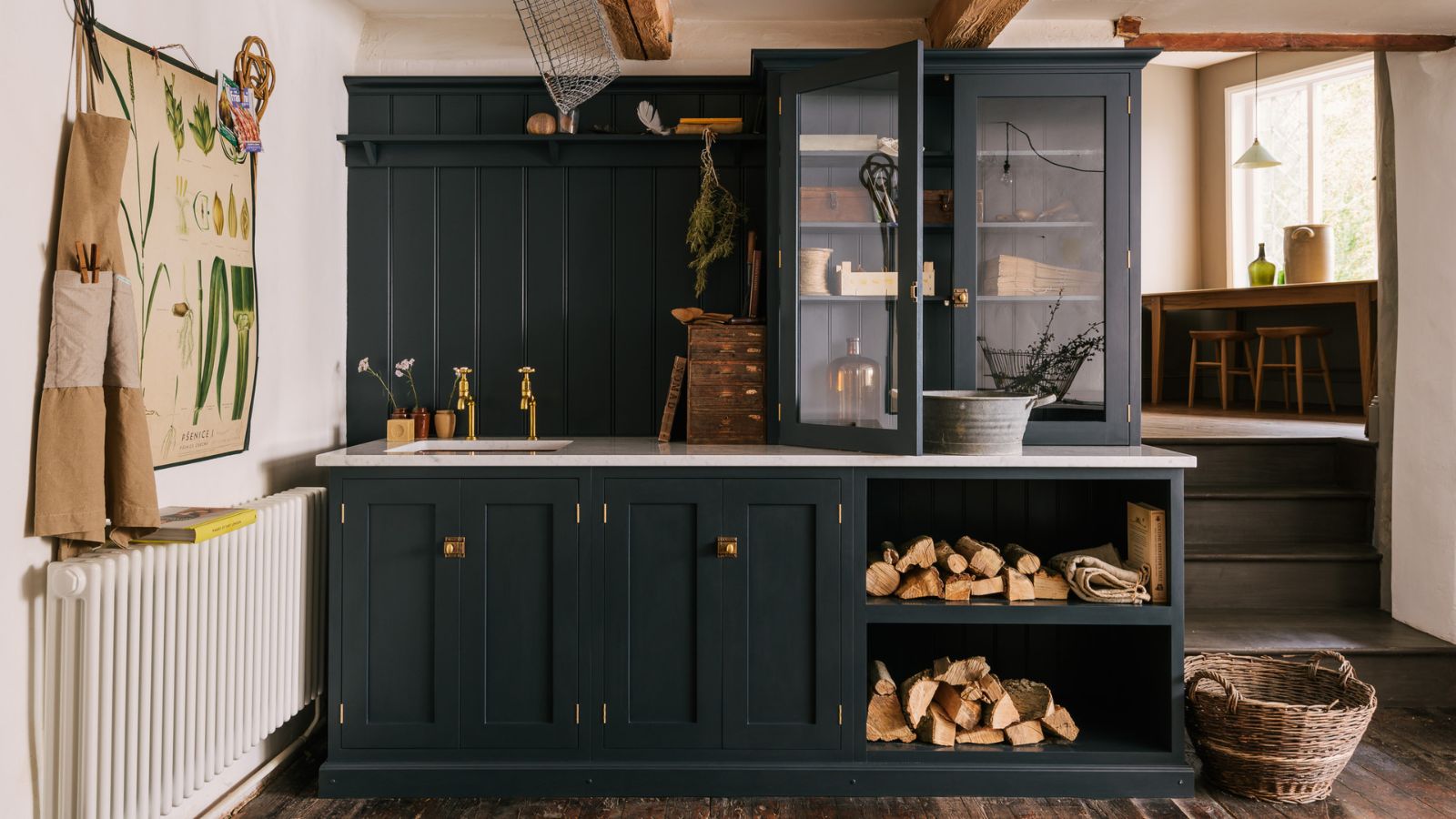

Ottilie Blackhall
With so many options on the market and ingredient lists as long as novels, it can be tricky to pick non-toxic cleaning products that actually work.
Luckily, cleaning and sustainability experts are on hand to share the best non-toxic cleaning supplies for your home.
Here, they reveal what to avoid, what to shop, and how to make your own cleaning solutions for a non-toxic home.
Picking non-toxic cleaners for your home
You do not need harsh chemicals to clean, so picking the best essential cleaning supplies comes down to knowing which cleaning product ingredients to avoid, why, and what to look out for instead.
Hector Stewart, CEO at Baltimore HCS Home Cleaning Services explains, ‘Non-toxic cleaning products are made without using dangerous chemicals that could hurt people or the environment, such as phthalates, parabens, chlorine bleach, ammonia, or artificial scents.
'Instead, they use natural ingredients that are safer, like plant-based surfactants (cleansers made from corn and coconut), essential oils (like lavender or tea tree for their scent and medicinal properties), baking soda, vinegar, and other materials that break down naturally. If you choose non-toxic choices, you'll be less likely to be exposed to volatile organic compounds (VOCs) and other toxins that can make conditions such as asthma and skin irritations worse – this is very important for homes with kids or pets.'
Hector continues, ‘Most non-toxic cleaning products are also biodegradable and come in eco-friendly containers. This means that they break down more easily in dirt and water without polluting them. Because they don't use chlorine, phosphates, or other harmful chemicals, these cleaners help lower the amount of harmful chemicals that get into the water and air, which is good for saving plants and animals.
Design expertise in your inbox – from inspiring decorating ideas and beautiful celebrity homes to practical gardening advice and shopping round-ups.
'Reputable eco-friendly brands never test on animals and use recycled or little packaging. This is in line with a more moral and environmentally friendly way to clean.’
With that in mind, these are the top picks to help you set up for green cleaning.
The best non-toxic DIY cleaning solutions
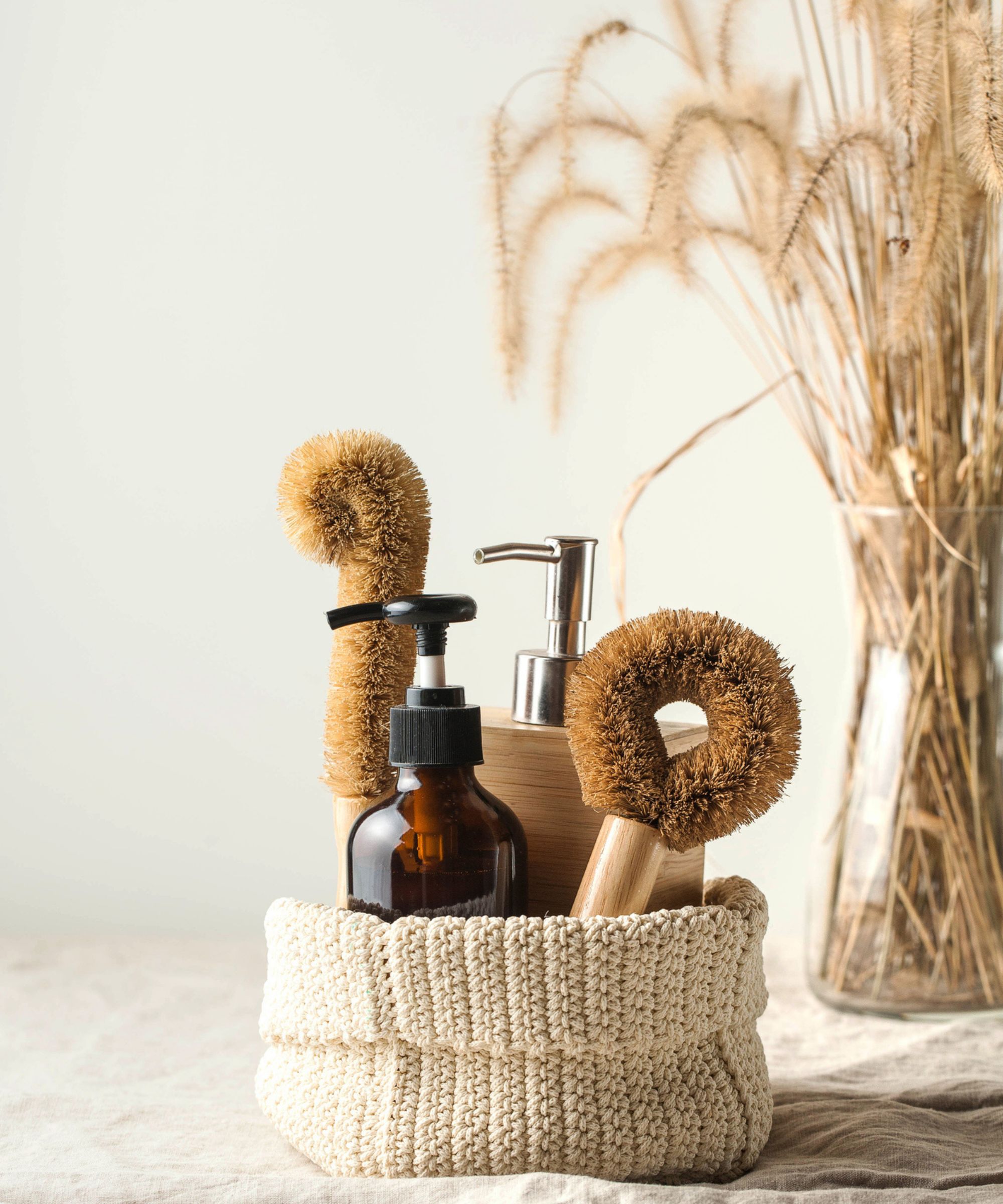
White vinegar and baking soda
Here at Homes & Gardens, we love cleaning with baking soda and cleaning with vinegar – so why not combine the two? In fact, I cleaned my house using only baking soda and vinegar for a week, and found it miraculous.
Karina Toner, cleaning expert and operations manager at Spekless describes this combination as 'The classic!'
She says, 'Sprinkle baking soda (such as the Great Value Baking Soda available at Walmart) on greasy areas, then spray with vinegar. Let it fizz for a minute before wiping clean – it works wonders to clean an oven, clean a glass stovetop and make sink drains spotless.'
Importantly, this versatile duo is also cheap, and readily available. 'The fizzing action is satisfying to watch, and highly effective at lifting grime,' adds Toner. 'I personally love this for cleaning the kitchen tiles on my stove backsplash throughout the week.'
All prices correct at the time of publication.
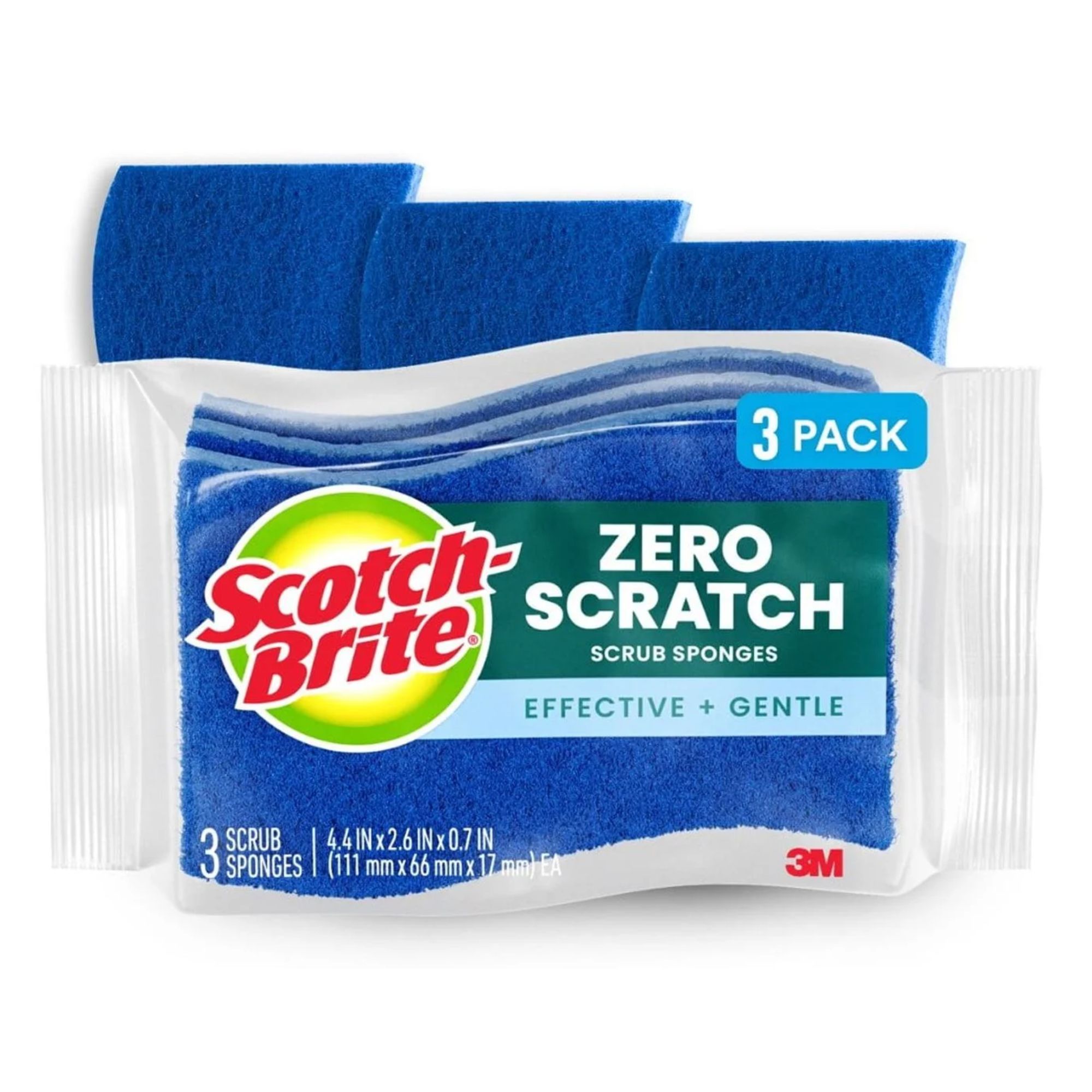
Toner recommends these scrubbing sponges to lift stains and grime from surfaces without leaving scratches or damage.
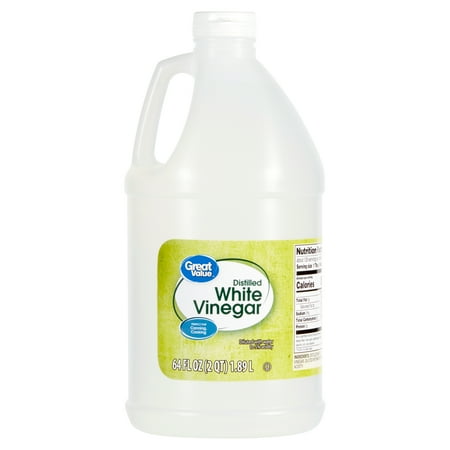
Cleaning with vinegar is a must for non-toxic households. A 2020 study, for example, proved that vinegar can kill many household germs, including some strains of E. coli, making it the perfect, non-toxic option for homes with pets and children. Just make sure you leave it on at least 30 seconds.
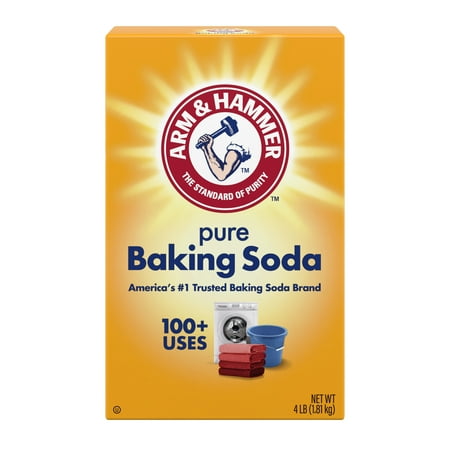
Cleaning with baking soda helps break down tough deposits without scratching delicate surfaces such as metal and glass. Mixed into a paste with water or used with vinegar for fizzy cleaning, it's safe for use in most areas of your home. It's also brilliant for deodorizing everything from tennis shoes to carpets, sofas and mattresses.
Lemon juice
For Carolina Kazimierski, co-owner and president of Sophia's Cleaning Service, the best natural way to fight grease and grime is by cleaning with lemon juice.
'This is such a simple hack, and I think it's especially effective because lots of people have lemons already sitting in their fridge,' she says. 'In fact, the reason lemons work so well – citric acid – is present in lots of commercial grease-fighting products (and general cleaning products too), so you're going straight to the source by using lemon juice. Plus, you can't get more natural than a piece of fruit!'
You can also use bottled juice, such as the 365 by Whole Foods Market Organic Lemon Juice available at Amazon, provided it is pure and undiluted.
Carolina adds, 'I've used lemon juice on stove top grease or oil splatter, and I've also cut lemons to scrub grease and grime on oven racks, and inside the oven itself. You can also use lemons to get rid of hardwater stains on glass.
'I will often combine lemon juice with some baking soda to clean especially stained, grimy, or otherwise dirty surfaces, and have found it leaves a truly sparkling finish.' What's not to like?
Our top cleaning tip is to pop a couple of lemon halves in your dishwasher for a superior clean of your crockery and glassware.
Castile soap
Another natural classic favored by our experts is cleaning with Castile soap, which is also a household item you can substitute for dishwasher tablets. It is fantastic, especially as everyday antibacterial sprays can be toxic.
Cleaning expert Karina advises mixing a few drops of castile soap, such as the Pure Castile Soap Liquid available at Amazon, with warm water in a spray bottle. This can then be used as a homemade cleaning spray and wiped with a damp cloth.
She shares, 'Castile soap is my go-to for a gentle yet thorough clean. I love its versatility – it can tackle almost any surface, and is excellent for general kitchen and bathroom cleaning – and is still mild enough to use on delicate materials.'
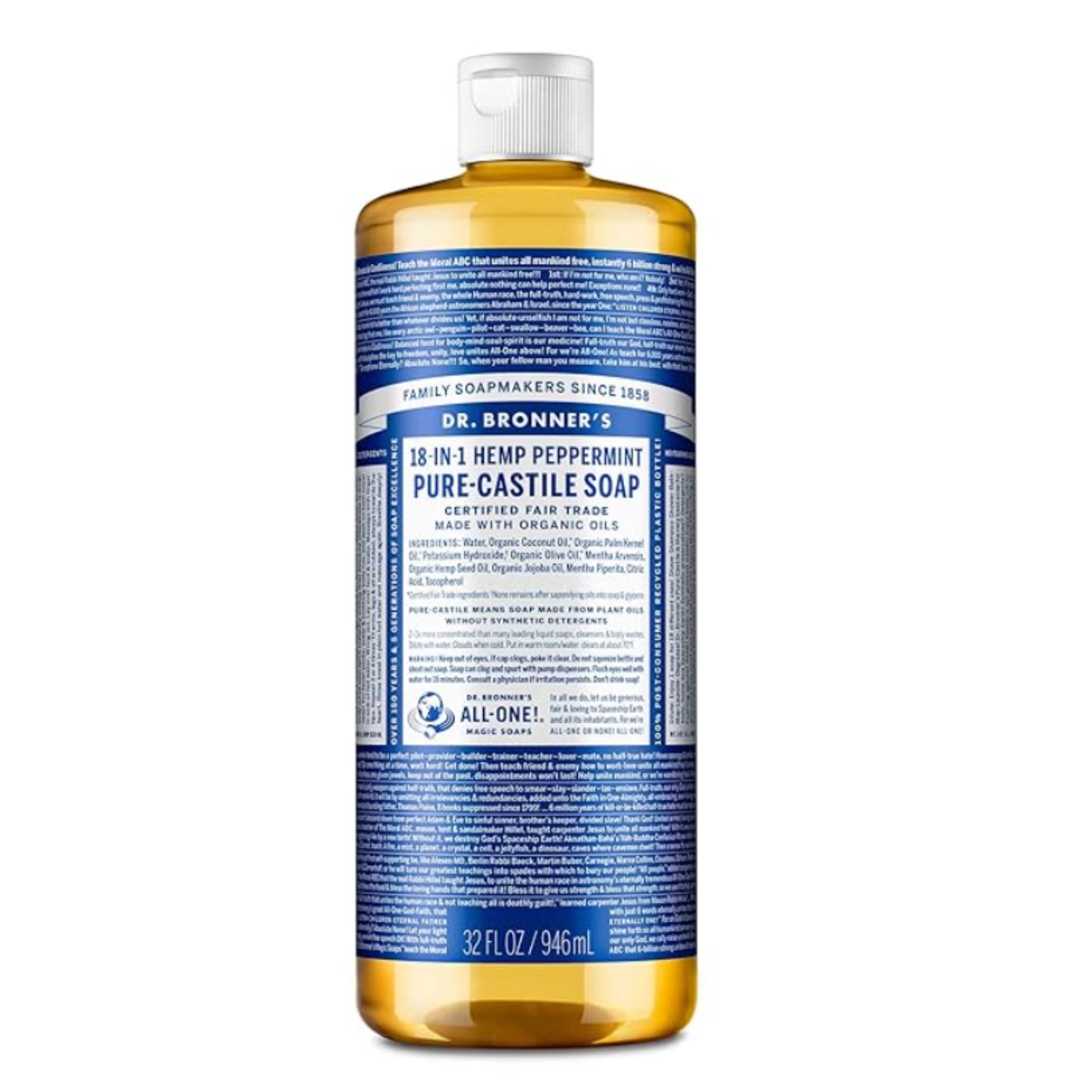
Non-GMO and all-natural, this Castile soap is made with organic oils and certified fair trade ingredients, with no synthetic additives. Why not use it to try making the best homemade window cleaner?
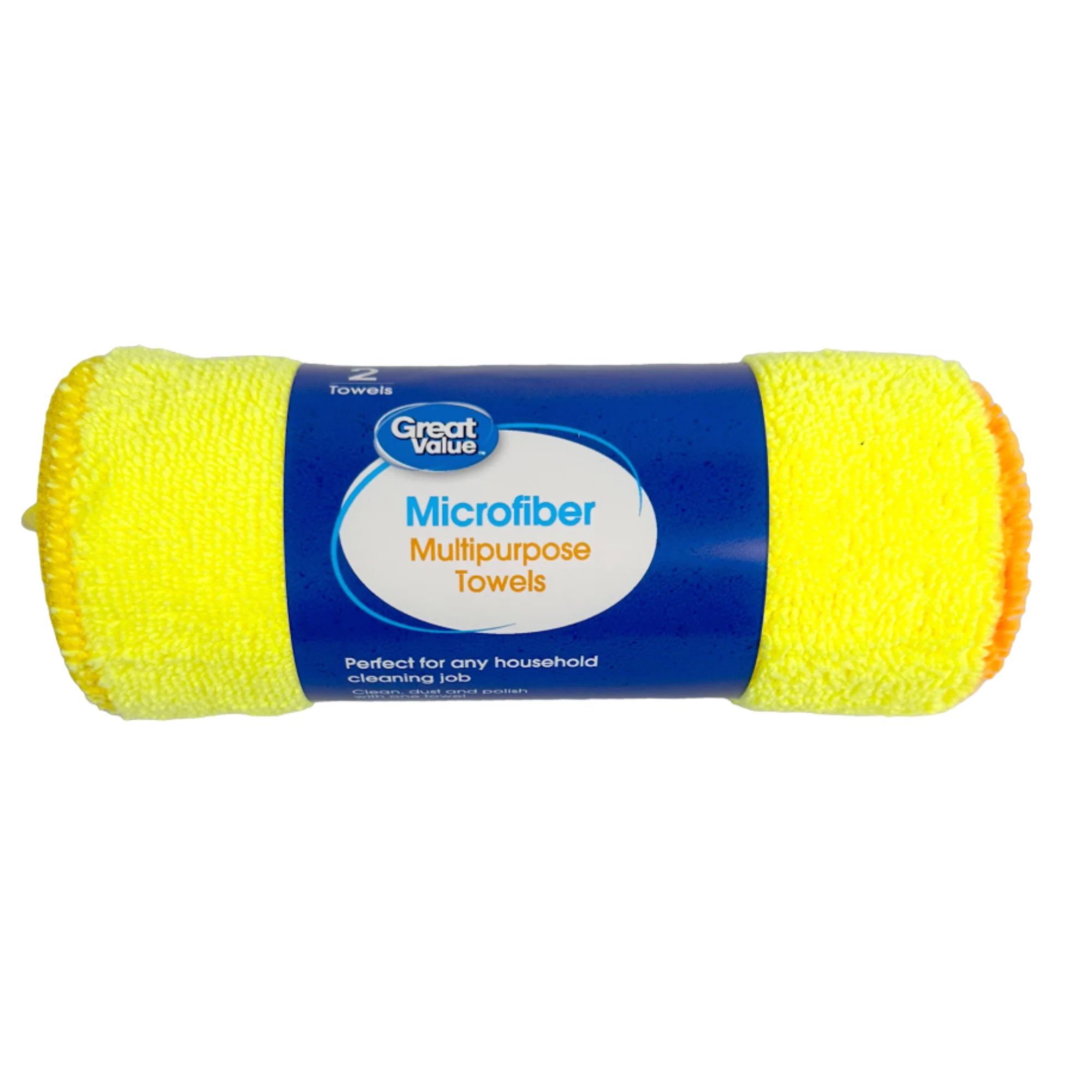
Useful for cleaning, dusting and polishing, these microfiber cloths are soft, absorbent, and can be conveniently cleaned in your best washing machine before being dried in your tumble dryer.
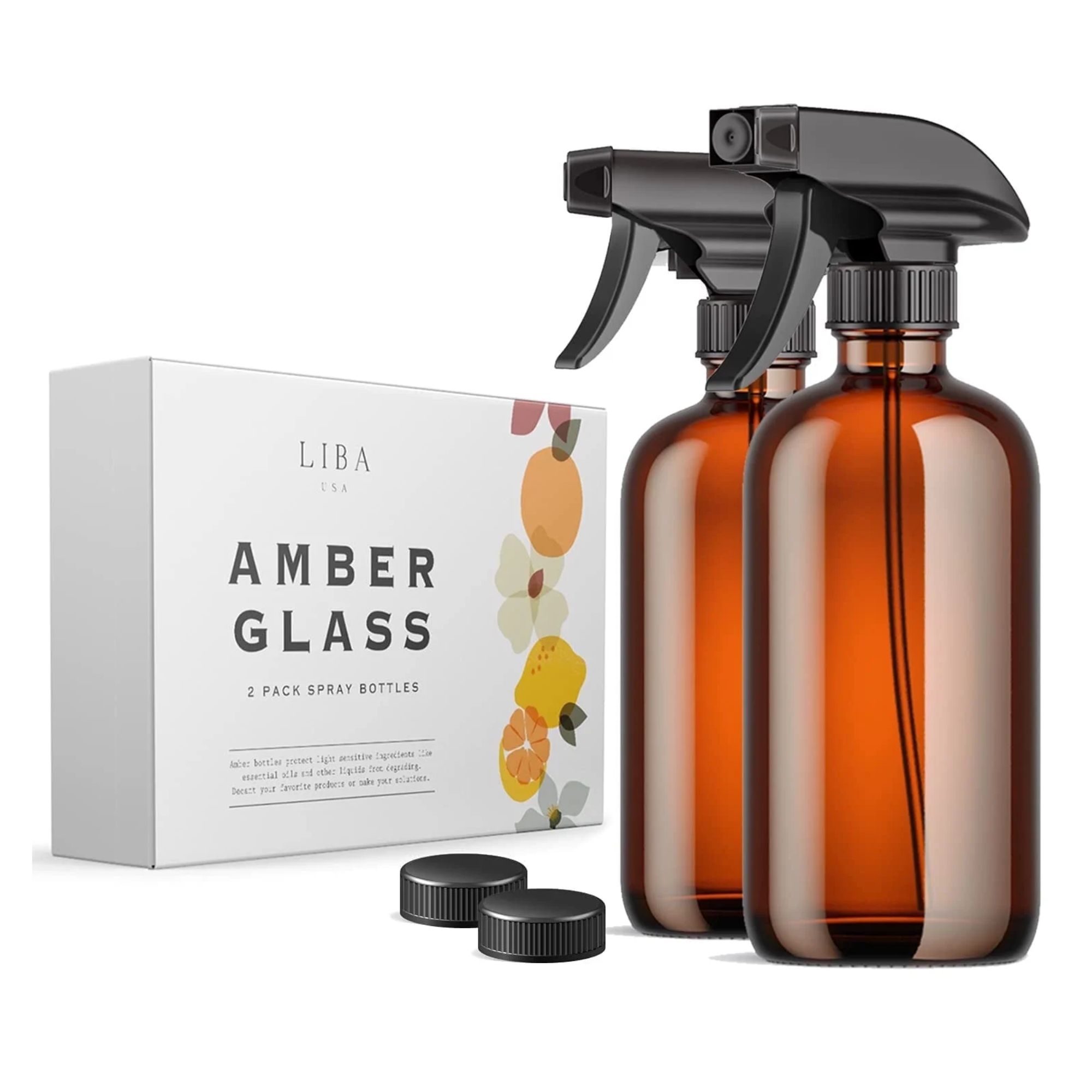
These amber spray bottles are ideal for housing homemade cleaning solutions, with UV-protection to prevent degradation and retain efficacy.
Essential oils
Finally, Karina loves making use of unusual ways to clean with essential oils at home.
'This method feels like a little luxury while cleaning,' she says. 'It's especially great after cooking a big meal when the kitchen needs a little extra refresh. It wipes away grease and leaves the room smelling amazing – plus, it's so simple to whip up and store in a spray bottle.'
To do so, she recommends adding ten drops of lemon or essential oil to a cup of water, before spraying onto greasy areas and wiping clean. 'It's ideal for counters, stovetops, and even furniture with mild buildup.'
Recently, Punteha van Terheyden, head of Solved here at H&G, swerved any essential oil cleaning mistakes by using essential oils to clean stainless steel, and now rates them as 'vital cleaning ingredients.' She adds, ‘I use essential oils all over my home now. I wish I’d known how powerful and effective these natural liquids were 20 years ago.’
Non-toxic multipurpose cleaning products
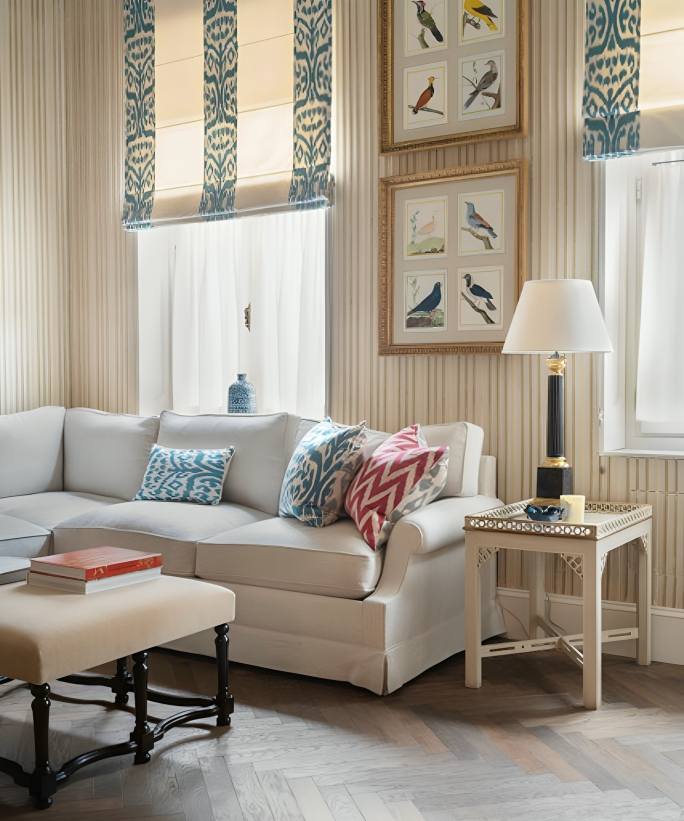
The number one essential cleaning tool everyone needs is an all-purpose cleaner. These anti-bacterial products will kill germs and pathogens for a sanitary home, if you're wondering if natural cleaners disinfect common bacteria and viruses.
Avoiding chemical sprays is crucial for reducing your home’s environmental impact. Many commercial sprays contain volatile organic compounds (VOCs) that can harm both your health and the planet. Karina Toner adds, 'Look for products labeled as biodegradable or made from recycled materials to ensure minimal environmental impact.'
It's also a good idea to opt for refillable cleaning products, to reduce plastic in your everyday cleaning routine.
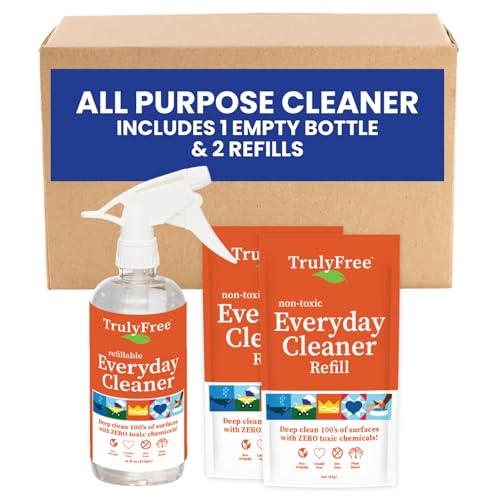
I have tried the TrulyFree cleaning range and loved it. They come in concentrated packets that you mix with water, limiting packaging and the need for harsh chemicals. Maria Mooney, non-toxic cleaning exert and brand director at Truly Free Home explains, 'Its plant-powered formula is not only tough on messes but completely safe to use on the surfaces your fur babies and children touch every day. With its powerful, multi-use formula, Everyday Cleaner will simplify your routine – saving you time, storage space and money. It works great on stainless steel, kitchen countertops, tables, chairs, appliances, toys and so much more.'
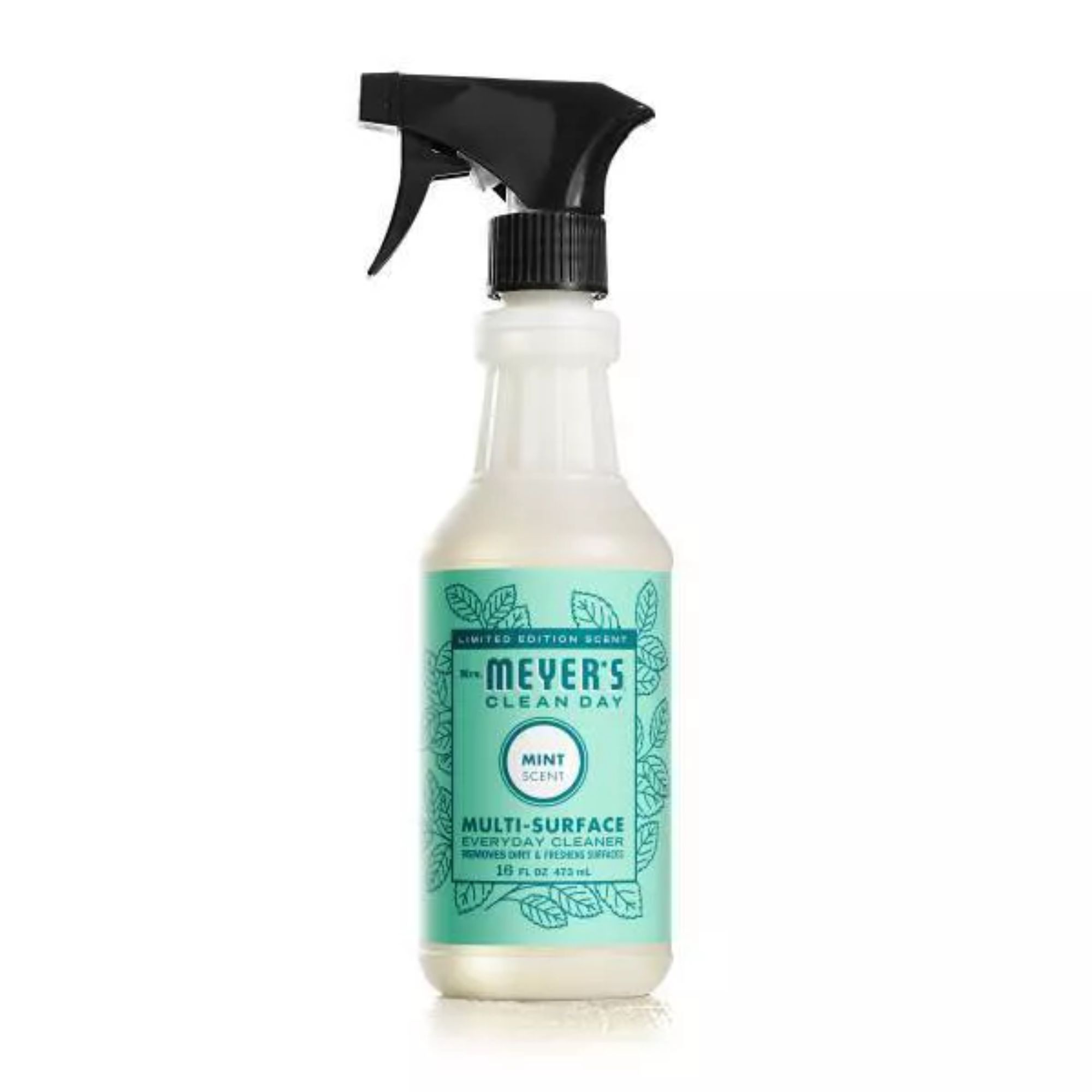
Hector continues, 'A well-known plant-based cleaner that can be used on sealed wood, tables, walls, and other surfaces in the home. It is made with natural ingredients and doesn't use synthetic scents. It's made from plant-based chemicals and essential oils, so it's gentle and won't hurt your skin. Also, 30% of Mrs. Meyer's bottles are made from recycled plastic that has already been used. The company is known for making cruelty-free goods that are garden-inspired.'
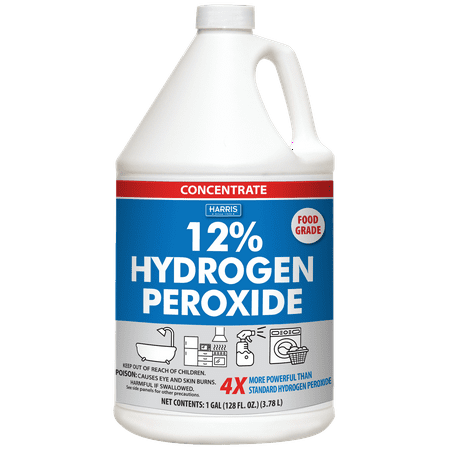
Cleaning with hydrogen peroxide is a great way to fend off germs, especially on high-touch food points such as kitchen counters and toddler high chairs as it is food safe, limiting the risk of cross-contamination.
Non-toxic degreasing products
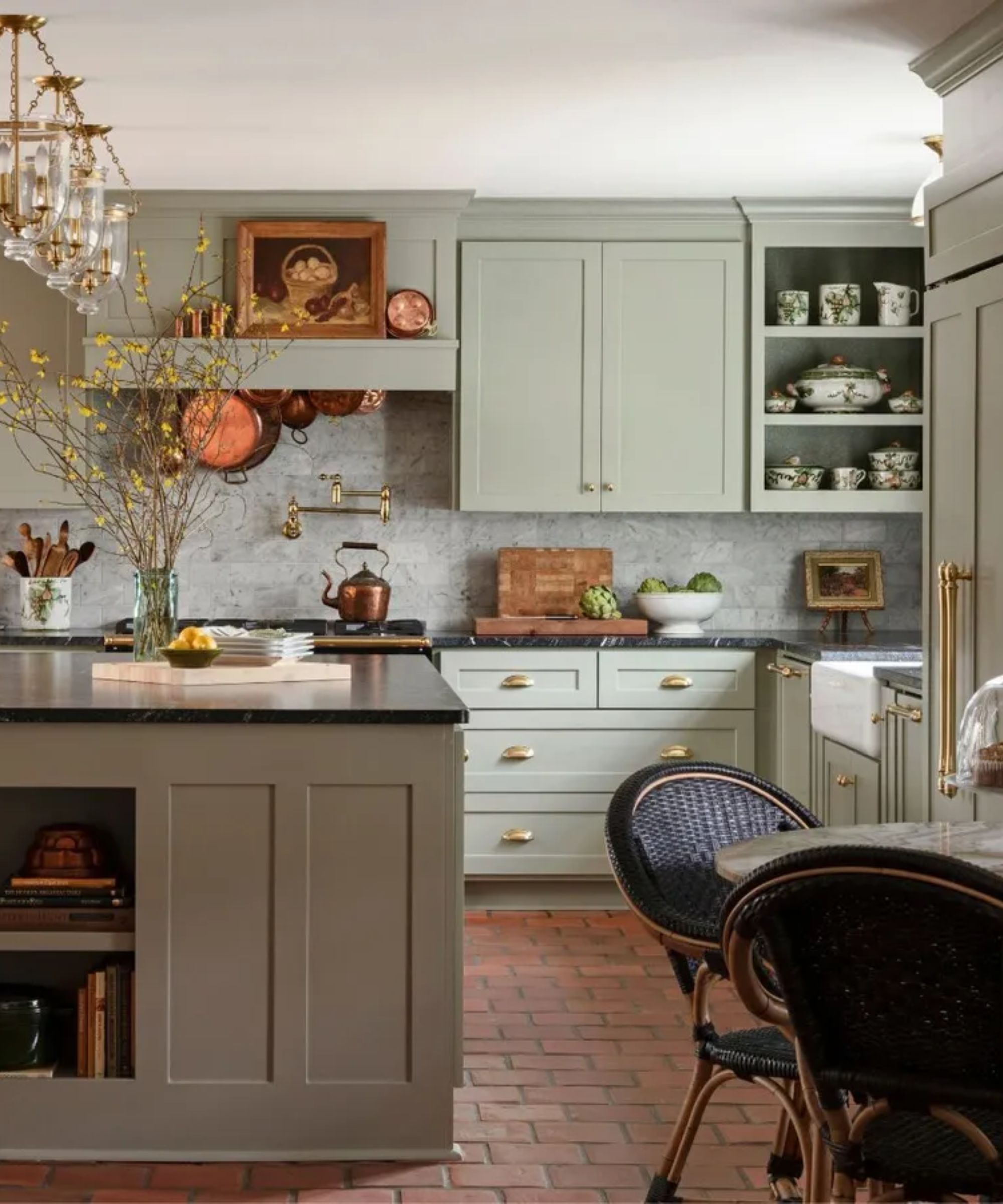
Whether you are cleaning kitchen grease and deep cleaning an oven, or cleaning garage floors, a strong degreasing solution is a must.
However, many heavy-duty solvent degreasers contain toxic chemicals such as phthalates, nonylphenol ethoxylates, VOCs, and sodium lauryl sulfate, all of which can cause skin irritation, respiratory problems, and other long-term health issues according to the American Lung Association.
Picking non-toxic alternatives is, therefore, essential to keeping you and your household safe and clean.
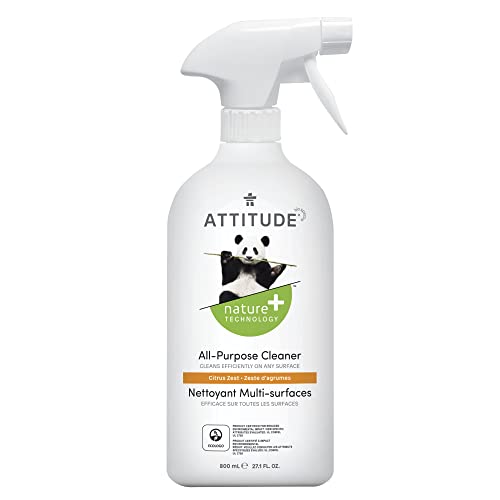
The Environmental Working Group (EWG) has certified Attitude products as non-toxic, meaning they contain no harsh chemicals or artificial compounds.
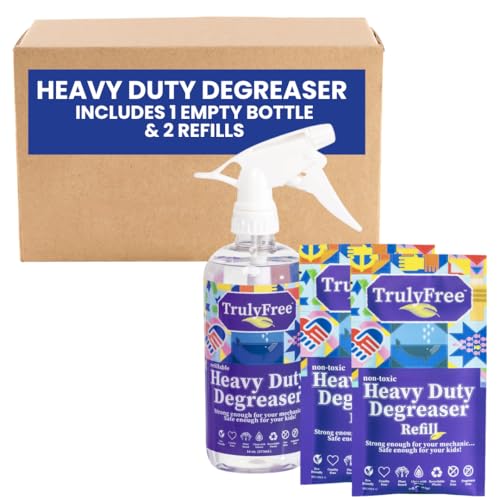
Another product I have tested, the Truly Free degreaser easily cleaned my glass stove top, even when it was coated with a week's worth of grease and oil splatters.
Maria Mooney adds, 'The degreaser solution uses fragrance-free, plant-powered ingredients without the harsh chemicals. Free from dyes, thickeners, formaldehyde, fillers, and other toxins, it’s a safe yet powerful choice for cleaning ovens, stovetops, grease on clothes, garage tools, and more.' Cleaning grimy areas regularly reduces the need to turn to harsh cleaning agents.
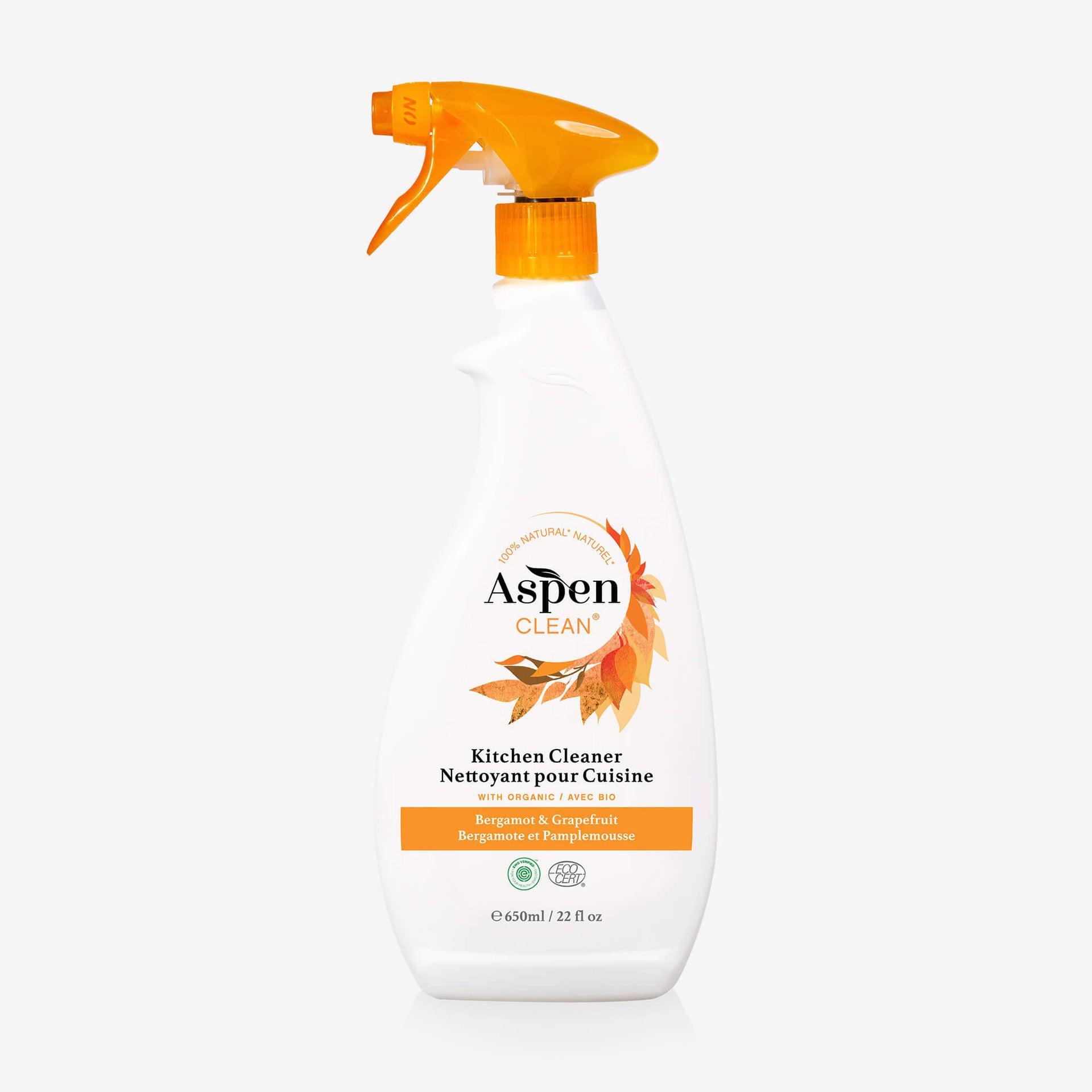
Certified sustainable by ECOCERT and EWG, the AspenClean degreaser is made with plant-based ingredients, and scented with essential oils. Alicia Sokolowski, cleaning expert and owner Co-CEO of AspenClean shares, 'The kitchen cleaner is specially formulated to cut through grease and grime on countertops, stovetops, and appliances.'
Non-toxic dish products
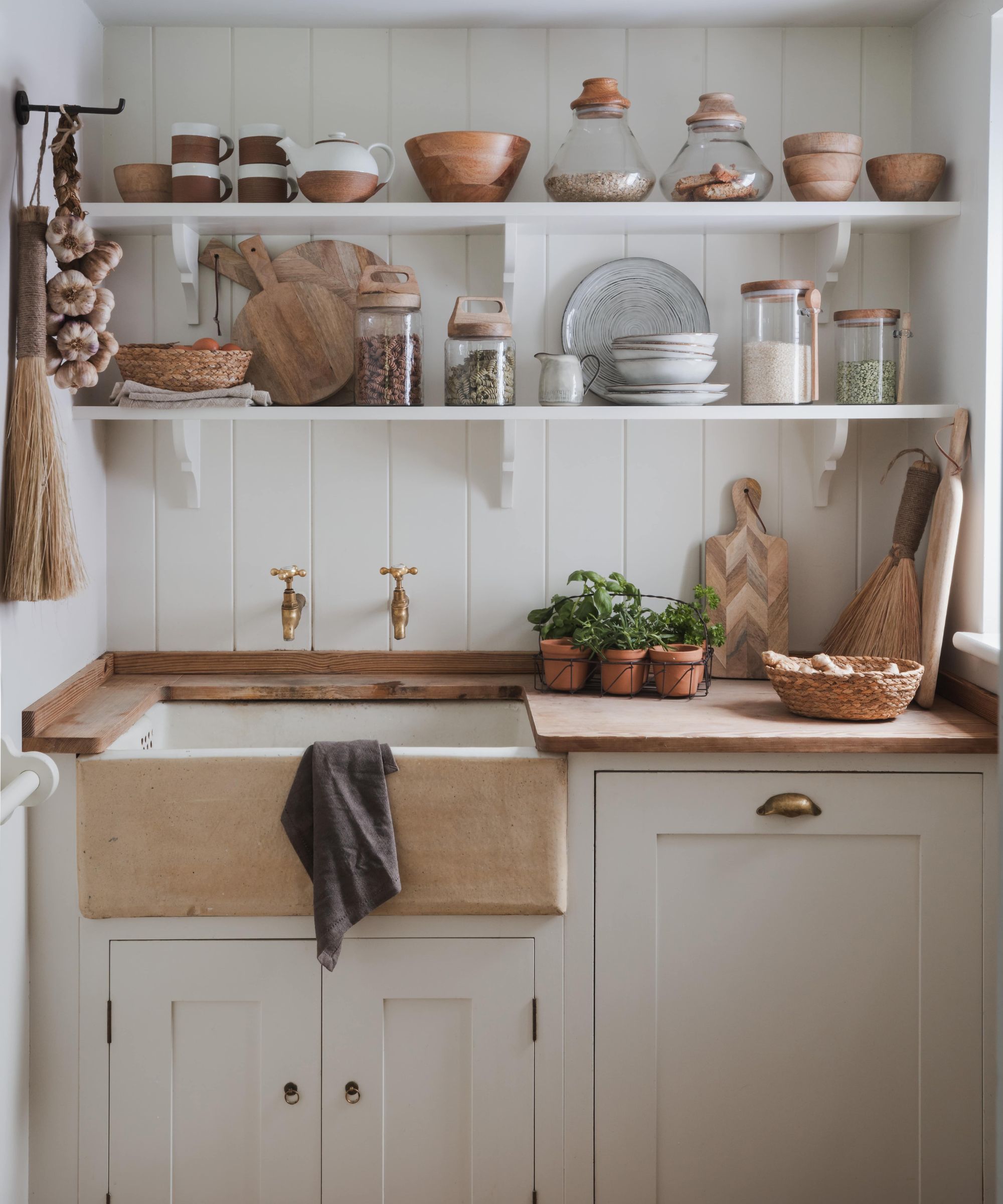
When used correctly, dishwasher tablets are not toxic, but they still contain harsh chemicals that can be damaging to the environment while several traditional dish soaps can be drying and damaging to skin with long-term use.
As such, it is wise to switch to less astringent alternatives.
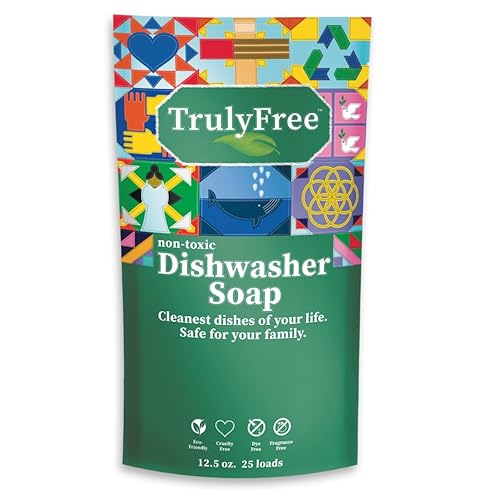
Maria Mooney explains, 'The dishwasher powder is a healthier and safer alternative to traditional dishwashing products. While many dish soaps can leave behind chemical residues, our formula is free from harmful substances such as fragrances, ammonia, bleach, and dyes. Instead, it’s crafted with naturally derived ingredients and nature-powered enzymes that effortlessly cut through tough grease and burnt-on food.'
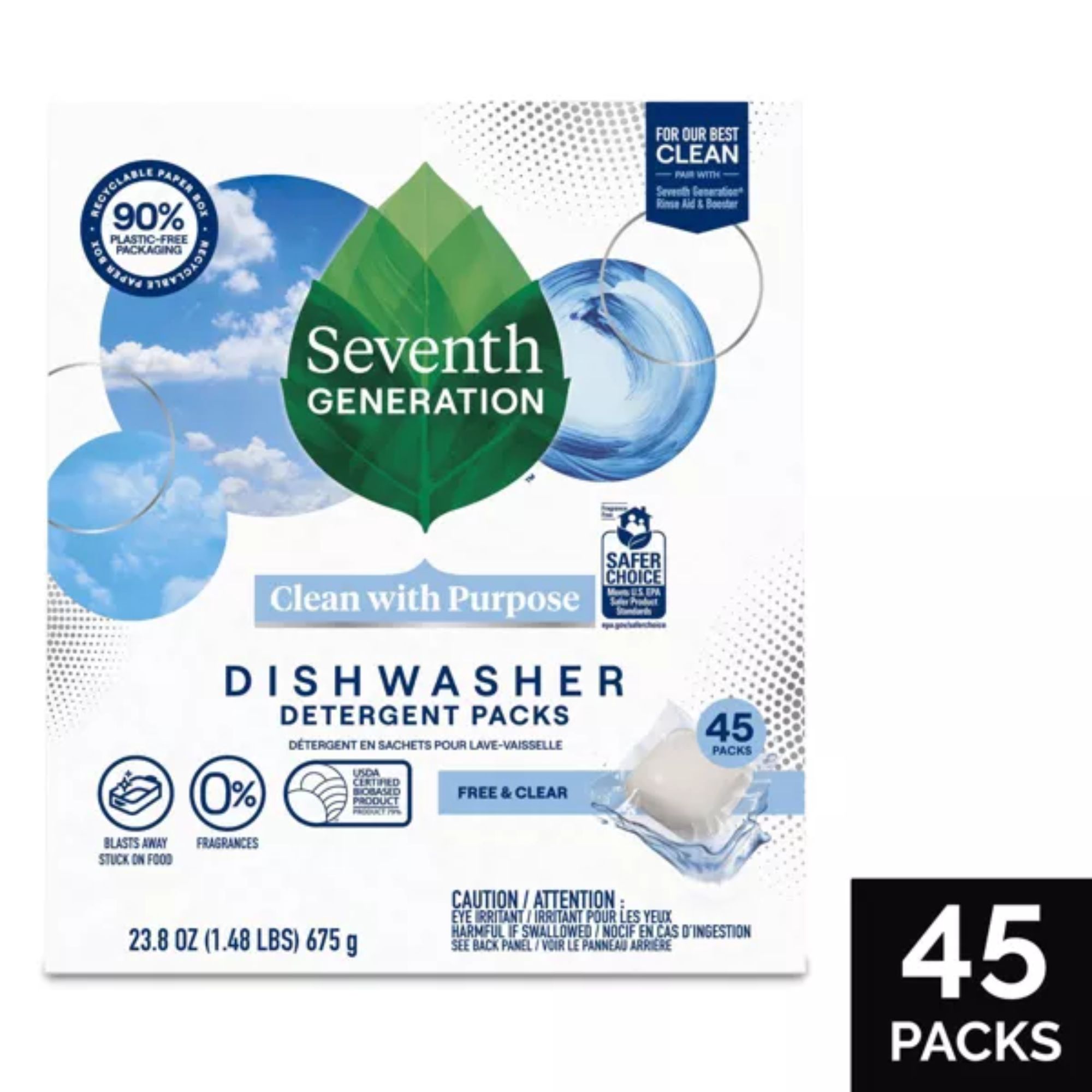
These hand dishwasher packs fit right into the detergent drawer of your dishwasher for a satisfying, powerful clean powered by plant-based ingredients and minerals. It also comes in 90% plastic-free packaging, to help reduce plastic use at home.
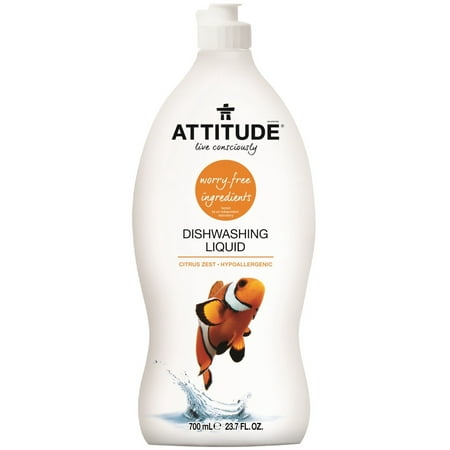
If you prefer to wash dishes by hand, switching to a non-toxic dish soap can help both your dishes (limiting the risk of food contamination) and your skin, especially if you tend to wash dishes without wearing cleaning gloves.
Non-toxic bathroom products
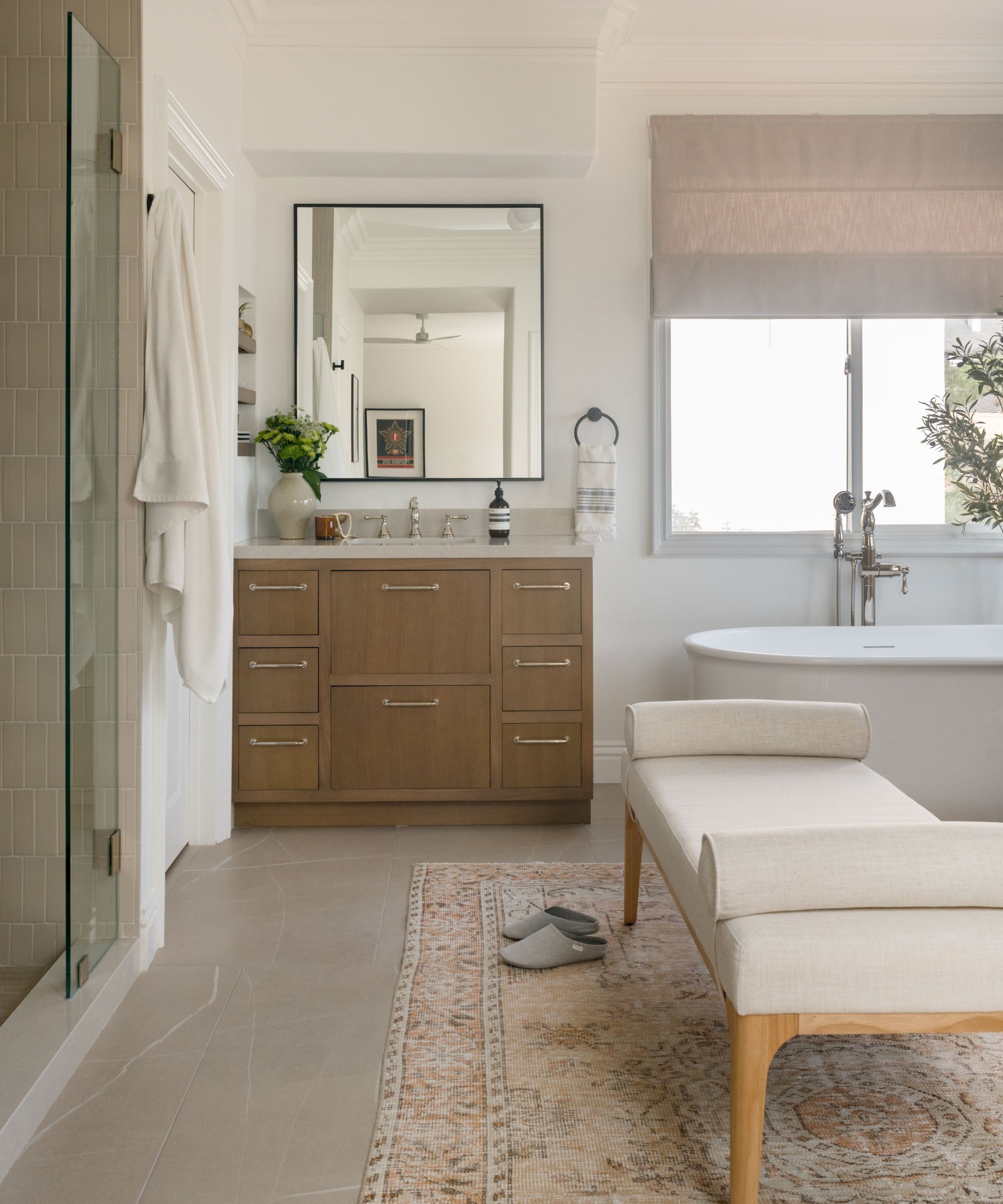
Cleaning a bathroom is a tough task, but non-toxic bathroom cleaners can make it easier and less damaging to your health. By cutting out products such as bleach, you are not only protecting the environment but your skin, airways, and eyes, too.
These Seventh Generation bathroom cleaning supplies are EPA Safer Choice certified, making them a healthier choice for your home, but you can also clean with vinegar and baking soda to get rid of black mold on grout and sealant, get rid of hard water stains, and remove odors.
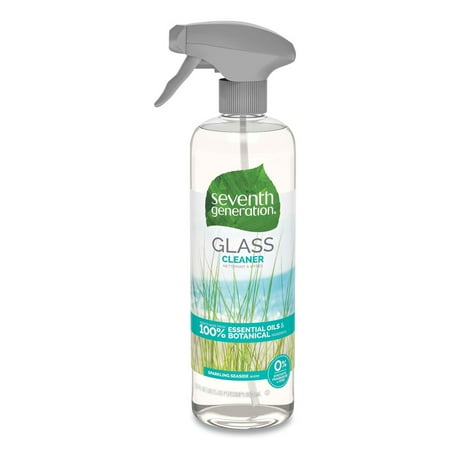
This Sparkling Seaside surface cleaner scent derived from 100% essential oils and botanical ingredients, with 0% VOCs, artificial fragrances, dyes, or harsh fumes, all in a 100% Post consumer recycled plastic bottle.
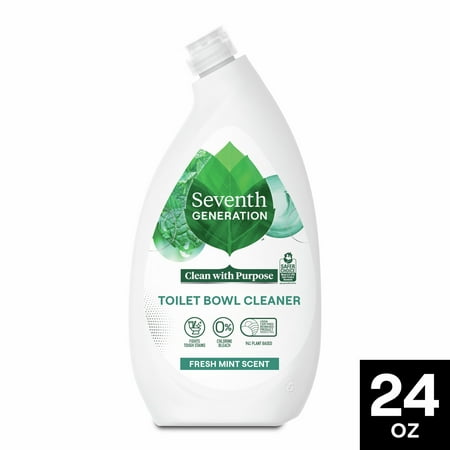
You should never clean with bleach when you can help it. It is incredibly astringent and often doesn't kill all bacteria. A dedicated, eco-friendly toilet cleaner left to soak for longer is more effective and safer for you and the planet.
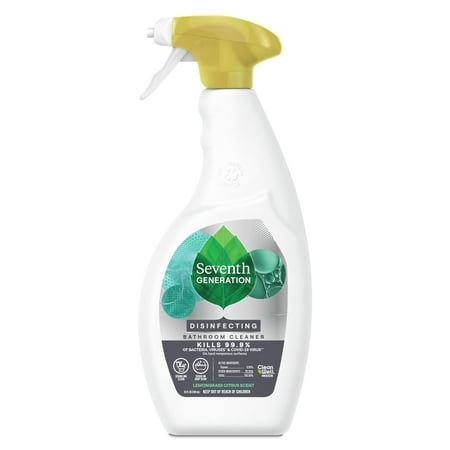
Perfect for bathroom surfaces such as cleaning glass shower doors, faucets, basins, and counters, this all-round disinfecting spray keeps everything sanitary without harsh chemicals that damage your airways.
Non-toxic laundry products
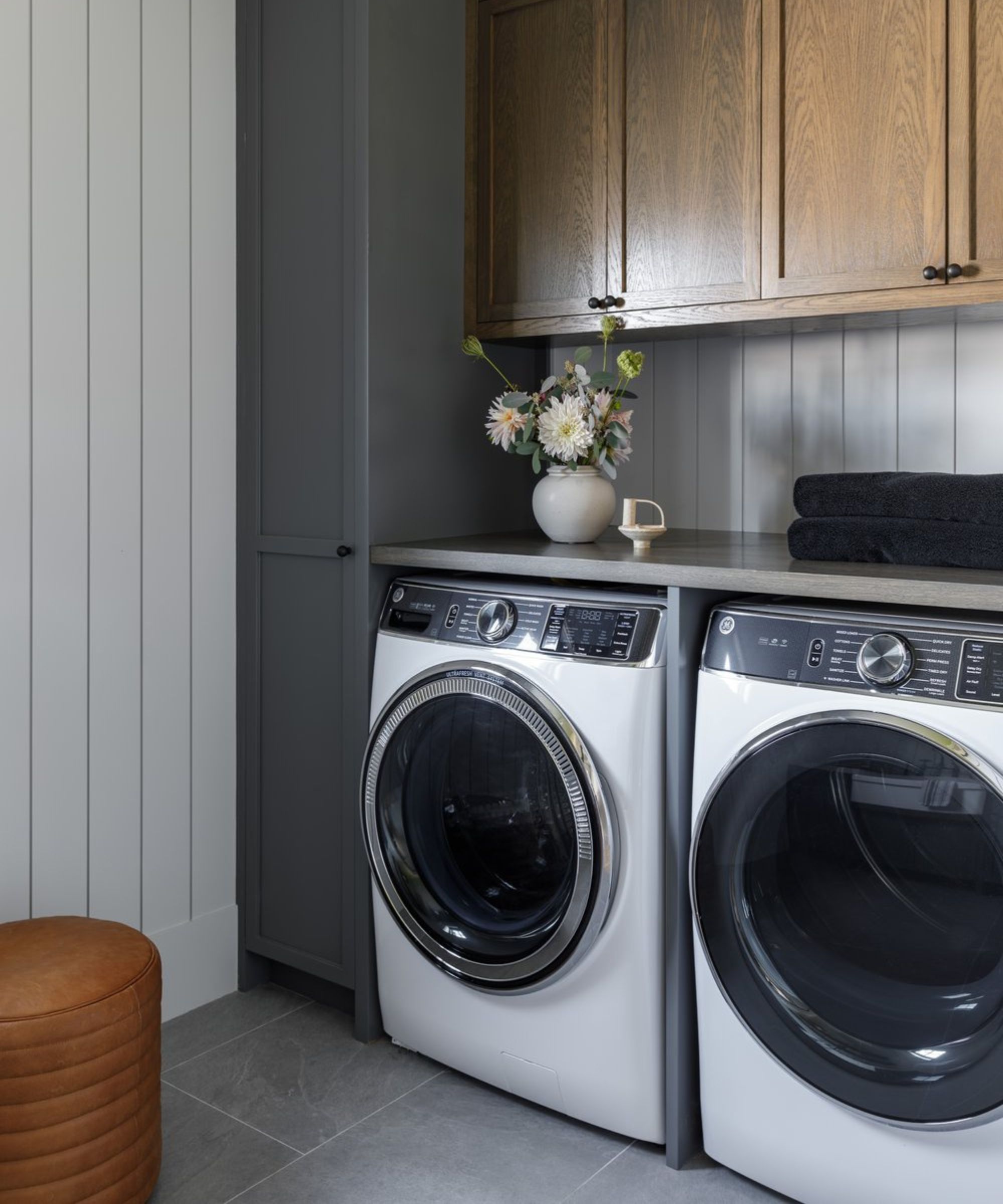
There are several secretly toxic laundry room items that could be damaging your garments, linens, and your health, impacting your sleep, exacerbating skin conditions, and potentially causing respiratory illness.
Using products free from dyes and fragrances reduces product build-up on sheets and clothing, making fabrics feel softer and reducing the risk of allergens and skin irritation.
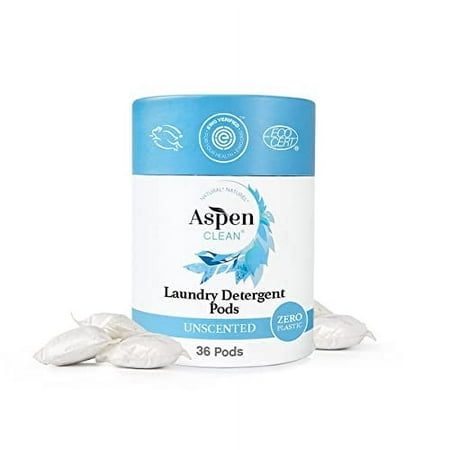
The Aspen Clean pods are EWG certified for a healthier home, and come in cardboard packaging to reduce plastic use. The pod formula also makes it easier to get the dosage right in your laundry, avoiding the common laundry mistake of using too much product.
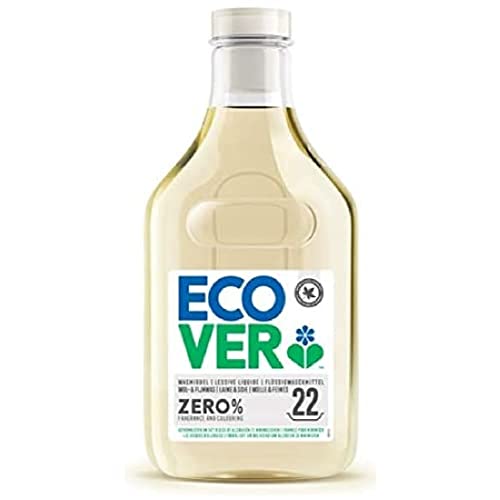
Ecover has become a staple for many of my family members. I use it to keep eczema and acne under control, my mom uses it to help psoriasis, and my grandmother uses it to avoid setting off my grandad's breathing problems. I would never be without it.
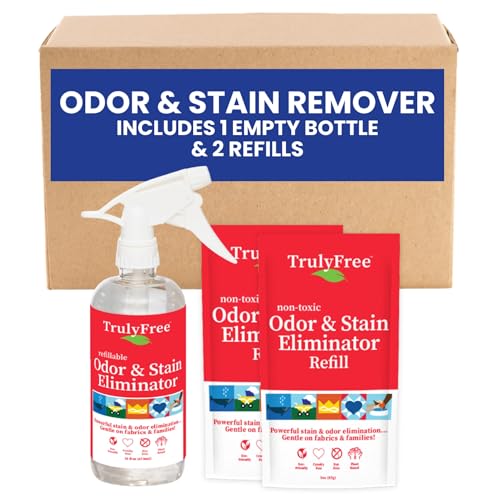
Keeping a home clean when you have pets, children, or are a little clumsy, can be hard. To remove stains on furniture, carpets, rugs, and clothing with this eco-friendly formula.
Non-toxic pool cleaners

Pool maintenance is a traditionally chemical-laden process, but there are ways to limit the toxins and your environmental footprint.
Jeremy Yamaguchia, pool expert and CEO at Cabana says, ‘Even in areas of the home that typically do require harsh chemicals for cleaning, there are sometimes decent non-toxic alternatives. With pools, for example, there are some great enzyme-based non-toxic cleaning products, such as Natural Chemistry Pool Perfect.
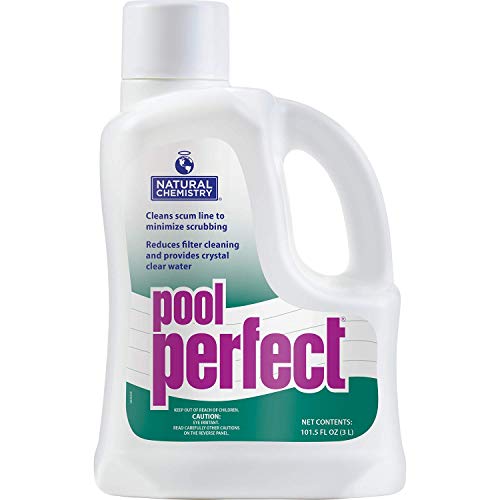
This non-toxic pool cleaner naturally cleans pool water and surfaces, reducing waterline rings and surface oils while giving water a soft, silky feel through SMARTZyme Technology which reduces non-living organic buildup. Plus, it can safely be used with all filter medias and pool surfaces.
Non-toxic cleaning tools
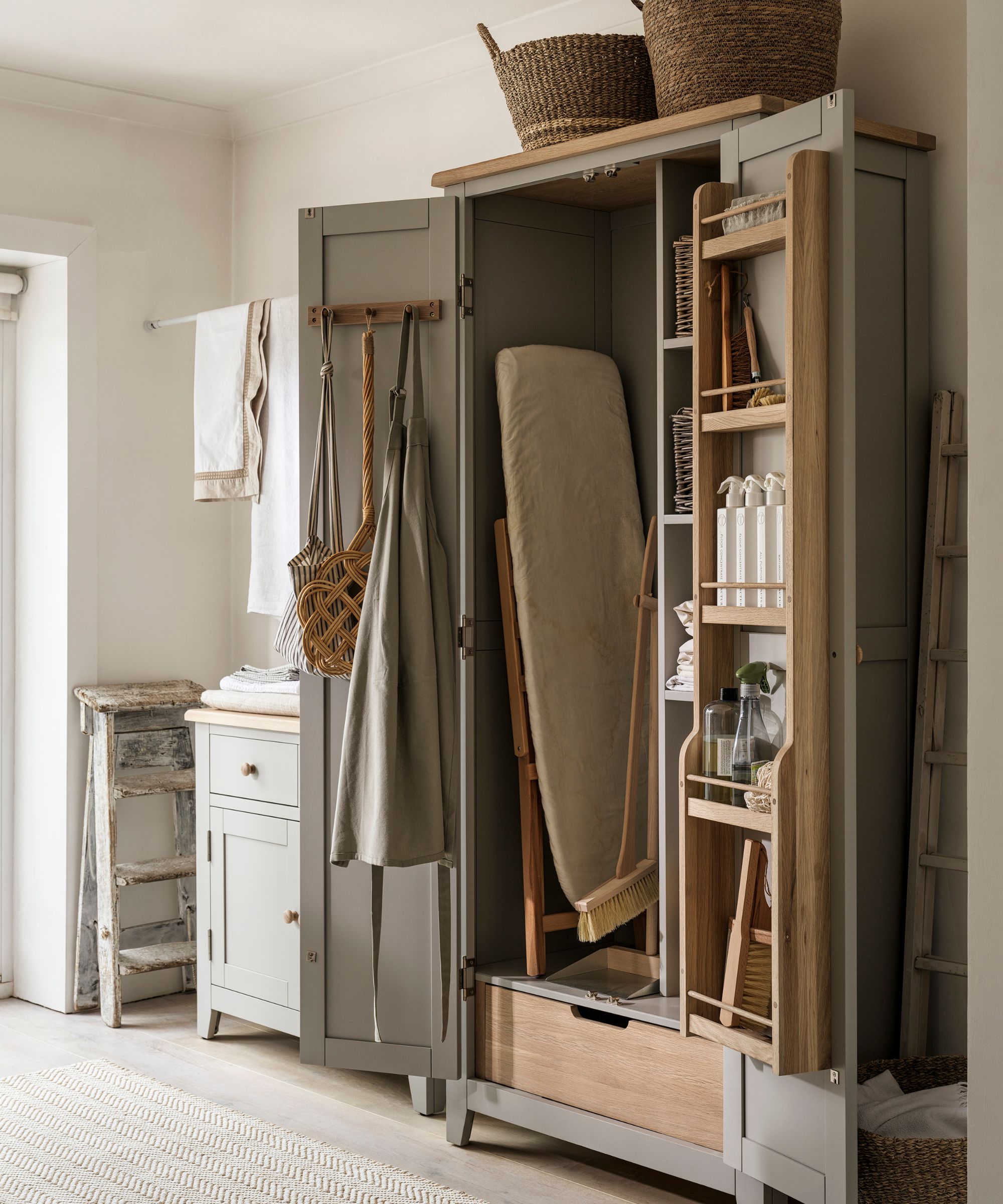
Steam cleaners
Cleaning your home effectively doesn’t have to mean using harsh chemicals that harm the environment. One of the best eco-friendly alternatives is using steam cleaners.
Will Cotter, owner of FreshSpace Cleaning, says, 'A lot of folks rely on chemical cleaners, but those can actually be pretty harsh on both our health and the environment. For example, ammonia and bleach are really powerful agents but can mess with our indoor air quality and also end up polluting our water when they go down the drain.
'Steam cleaners disinfect and sanitize surfaces without any of those chemicals – just water and heat!'
For hard floors, Cotter recommends the Bissell PowerFresh Steam Mop from Wayfair, which comes with 13 attachments to ensure you can reach all corners.
Cotter adds, 'If you prefer something more versatile – that you can use on almost anything – go for the McCulloch Heavy-Duty Steam Cleaner from Amazon, which comes with more than 25,000 5-star customer reviews.'
By swapping to steam, you eliminate the need for chemical-laden products while still achieving a deep clean on floors, countertops, and even upholstery.
Reusable mops and cloths
Switching to reusable mops and cloths is another simple way to clean your home without harming the planet.
Blanchard says, 'Paper towels and disposable mop pads create tons of waste. Microfiber cloths and reusable mop pads can be washed hundreds of times. They also clean more effectively, reducing the need for harsh chemicals. We've cut our paper product use by over 75% by making this switch.'
Microfiber is particularly effective at trapping dirt and dust, often requiring less water and fewer cleaning products than traditional materials. Cotter recommends these Turbo Microfiber Mop Pads from Amazon, which are compatible with most 10-12-inch mops.
For hand cleaning, Blanchard recommends these Norwex All-Purpose Micorfiber EnviroCloths, adding, 'These are my go-to for chemical-free cleaning. The microfiber is so fine that it picks up 99% of bacteria with just water.'
HEPA filter tools
Harnessing HEPA filters in your vacuum cleaners and air purifiers can significantly improve indoor air quality while reducing the environmental impact of cleaning. HEPA (High-Efficiency Particulate Air) filters capture up to 99.97% of particles, including dust, pollen, and pet dander, ensuring that these pollutants aren’t recirculated into your home.
The Shark Pet Pro Cordless Stick Vacuum from Walmart, which has an anti-allergen HEPA filter, is among the best Shark vacuum deals.
By using appliances with HEPA filters, you reduce the need for frequent dusting and chemical air fresheners, contributing to a healthier home environment.
Cleaning ingredients to avoid
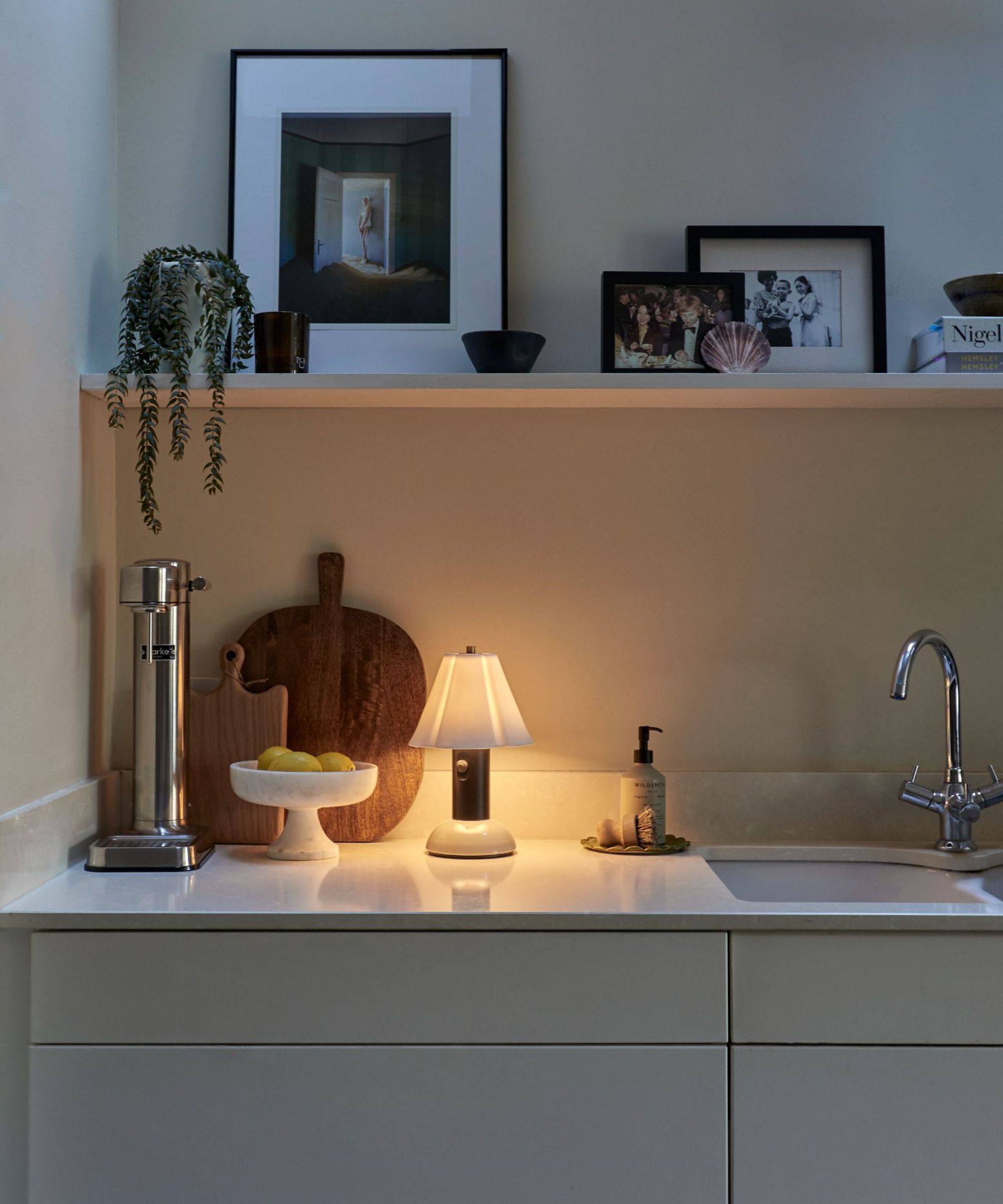
An important part of green cleaning is knowing which ingredients to avoid for a non-toxic routine.
We have listed some of the most common ones to avoid below, but to make this easier, Samara Geller, senior director of cleaning science says, 'we suggest looking for the EWG VERIFIED mark as they are produced according to the strictest standards and are formulated without chemicals of concern.
‘You can also consult EWG’s Guide to Healthy Cleaning, which rates over 2,500 cleaning products from “A” to “F” based on their hazard profile and manufacturing transparency. Choose products that rate A or B or that bear the EWG VERIFIED® mark.’
With that in mind, these are the things to check labels for when shopping.
‘Ambiguous’ ingredients
The main cleaning products experts hate are those that hide exactly what is in them. Samara Geller urges, ‘Steer clear of ambiguous mixtures. Look for products that disclose all ingredients, including those hidden behind vague terms like “fragrance,” “surfactant” and “preservative.”’
Ammonia
One of the most vital cleaning product ingredients to avoid is ammonia. Most commonly found in bleach, ammonia is a common household item that pollutes your air and poses a serious risk to your health.
Josh Miller, CEO of Clean Carpets says, ‘Avoid ammonia which is a common ingredient in many glass cleaners since ammonia can cause severe irritation to the respiratory tract; it also irritates the skin, especially for asthma or allergy-prone individuals.’
Ammonia can also be dangerous if mixed with other chemicals, whether accidental or not, so using it also means brushing up on the cleaning products you should never mix – adding extra work onto cleaning.
Instead, Josh suggests, ‘Replace ammonia-based products by switching to cleaning with vinegar or citrus-based cleaners, which can do similar degreasing and glass cleaning.'
Perchloroethylene
Dry cleaning clothes at home and cleaning upholstery might seem like a good budget hack to save money on cleaning, but it exposes you to more dangerous chemicals, such as perchloroethylene, says Evie Graham, professional cleaner and founder of Wasted Direct.
‘Common in dry-cleaning solutions and some spot removers, it's a known carcinogen. I opt for steam cleaning with the best steam cleaners and steam mops, or plant-based dry-cleaning alternatives.’
Chlorine
The only time you should be using chlorine is when shocking a pool. Otherwise, the risks and adverse health benefits are not worth it says Josh Miller, cleaning expert
‘Although chlorine is present in many bleach-based products, it is an irritant to eyes and lungs and potentially causes respiratory damage if inhaled over a period of time.
‘You may replace chlorine bleach with a milder chemical such as cleaning with hydrogen peroxide, which is equally effective for disinfection.’
Strong fragrances, a.k.a Phthalates
Phthalates – or synthetic fragrance additives – are not as serious as some of the other entries on this list, but they are best avoided when you can. There are plenty of other ways to make a home smell nice when you’re sensitive to fragrance, such as natural scents or essential oils. You can test out a selection such as LagunaMoon essential oils pack of six from Amazon cheaply.
Alessandro Gazzo, cleaning expert at Emily’s Maids of Dallas, says, ‘I think you should avoid fragrances if you’re sensitive to strong fragrances. If that’s the case, look for odor-free or fragrance-free options. You can find them under the ingredient list, usually listed as Fragrance or Parfum. Instead, you can use cleaning products with the tags unscented or neutral scent.'
Sodium hydroxide, Sulfuric acid and hydrochloric acid
Cleaning ovens and drains might seem like hard tasks that need strong chemical products, but there are several ways to clean an oven without chemicals or freshen up drains to stop musty smells without the need to rely on harsh additives such as sodium hydroxide.
Evie Graham, a professional cleaner says, ‘Present in oven cleaners and drain openers, sodium hydroxide is extremely corrosive. Instead, I use a paste of baking soda and water for oven cleaning, and a mixture of baking soda, vinegar, and hot water for drains.’
Samara adds, 'These corrosive chemicals can cause severe skin and eye damage. They’re typically found in products like oven cleaners, drain openers, hard water stain removers, and toilet cleaners.’
Ethylene glycol ethers
Samara explains, 'These include harsh solvents like 2-butyoxyethanol and butyoxydiglycol in soil and stain removers. They’re hazardous air pollutants linked to reproductive and developmental effects. When setting up a stain station, it is better to stock it with a laundry detergent free from dyes or fragrances instead such as Seventh Generation, or oxygen bleach (available at Walmart).'
Quaternary ammonium compounds
Also known as 'quats', these are found in fabric softeners, disinfectants, and sanitizers.
Samara says, 'They’ve been linked to asthma as well as reproductive harm and birth defects in animals. Avoid distearyldimonium chloride, benzalkonium chloride, and other ingredients ending in “-onium chloride,” as well as non-specific terms like “cationic surfactant.”'
FAQs
Is green cleaning actually effective?
Green cleaning (opting for cleaning products that do not use toxic or astringent chemicals) is usually just as effective at maintaining a healthier home as commercial cleaning products – if not more so, with a 2020 medical study demonstrating that acetic acid (white vinegar) has a disinfecting effect against a variety of microorganisms, including dangerous pathogens such as E. coli.
Is green cleaning more expensive?
In many cases, you can use pantry staples for cheap and effective dirt-busing. Cleaning with baking soda or vinegar is a lot more affordable than buying chemical-laden products off the shelves. The cost starts to rise, however, when you look at products such as fragrance and dye-free laundry detergents, as they use higher quality, sustainable ingredients, which are usually more expensive to source.
When you weigh up the health costs of chemical products with the monetary costs of green cleaning, however, the scale tips in favor of the environmental products, especially when you remember they better the health of your family.
Learning more about avoiding greenwashing when picking cleaning products will help you skip the products that claim to do things to protect the planet, or promise something about their ingredients, but actually, their claims are not truly representative of the reality.
Remember, too, that cleaning products expire, so use products up and keep track of expiration dates to ensure they are always effective.

Chiana has been at Homes & Gardens for two years and is our resident 'queen' of non-toxic living. She spends most of her time producing content for the Solved section of the website, helping readers get the most out of their homes through clever decluttering, cleaning, and tidying tips. She was named one of Fixr's top home improvement journalists in 2024.
- Ottilie BlackhallNews Writer